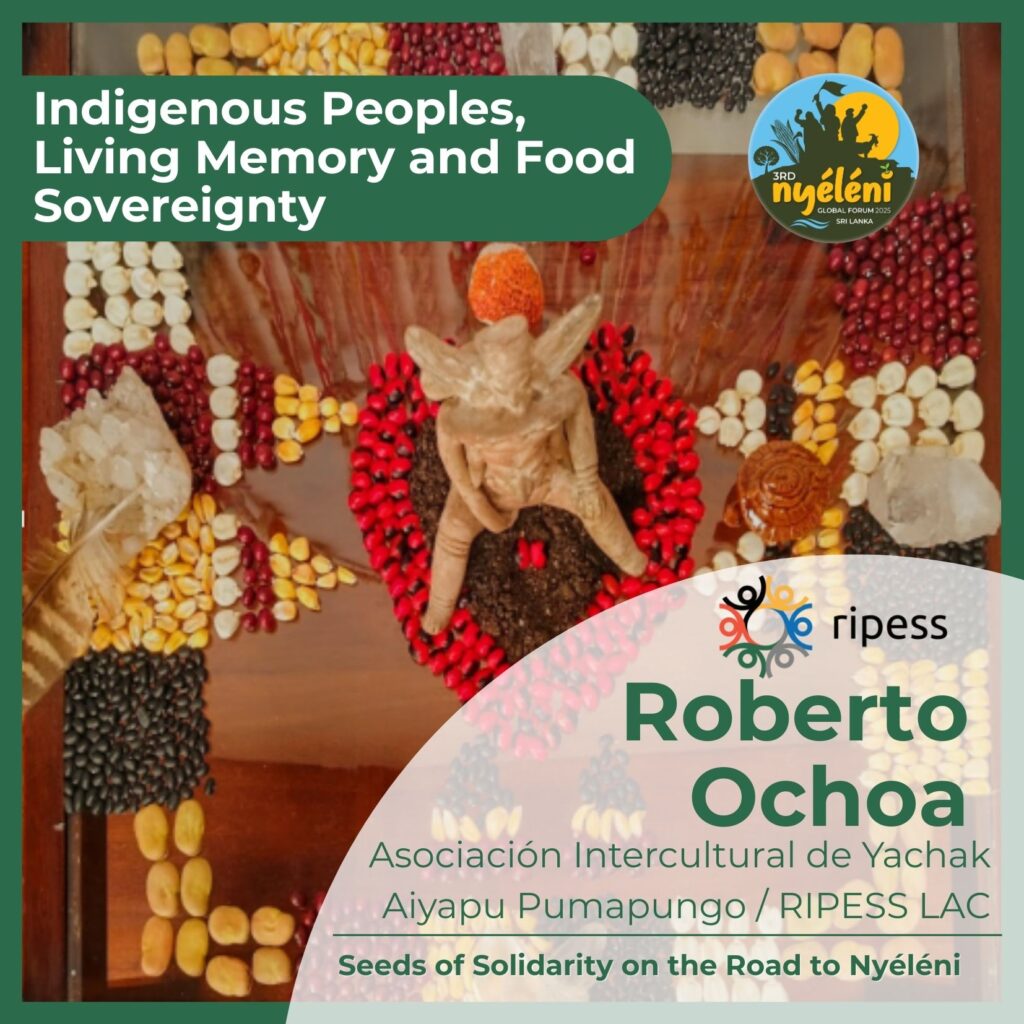
rom a city of craftsmanship and manufacturing in Ecuador, surrounded by diverse agricultural and agroecological rurality, Roberto Enrique Ochoa Dávila —member of the RIPESS LAC Indigenous Peoples Commission and the Intercultural Association of Yachak Aiyapu Pumapungo— carries in his bag the spiritual, cultural, and political strength of Indigenous peoples, deeply connected to the Chakra, the land, and the universe.
In his territory, food sovereignty is cultivated through agroecology, ancestral medicine, traditional seeds, water, silvopastoral systems, biodiversity, and the protection of the knowledge held by healing mothers, midwives, and producers. All of this is sustained by values of reciprocity, barter, minka, ayllu, and ayni, reaffirming social, community, and environmental justice.
The challenges are many and structural: the advance of agribusiness with GMOs and chemicals versus the precariousness of agroecological production; the pressure of the industrial pharmaceutical system on ancestral medicine; lack of access to fair markets; soil and water source degradation; and the constant threat of extractivism on ancestral territories.
Through the Social Solidarity Economy (SSE), Indigenous peoples strengthen the relationality between sky and earth, water and seeds, community and nature. The Chakra is lived as a biodiverse and solidarity-based economy, while the minka —collective and solidarity-based work— becomes a profound political act for the common good. Agroecological practices, participatory guarantee systems, ancestral medicine, and Andean spirituality consolidate a dignified life in harmony with Pachamama.
The strategies underway are diverse and interconnected:
– Recovery of traditional seeds and defense of water sources
– Creation of community schools in agroecology and ancestral medicine
– Organization of agroecological fairs, spaces for fair trade and responsible consumption
– Promotion of solidarity cooperatives, women and youth-led enterprises, and savings and credit systems in Indigenous and rural territories
– Advocacy in local, regional, and national public policies, including constituent processes and constitutions that recognize Buen Vivir and the rights of nature
– Promotion of appropriate, non-invasive technologies that respect the rhythms of the land and culture
– Defense of territories against mining, pollution, and ecosystem destruction, with actions for soil regeneration and agrobiodiversity protection
– Articulation between traditional and academic knowledge, generating dialogical spaces to build proposals from the community
At the Nyéléni Forum, Roberto brings a millenary symbol that strengthens the spiritual and cultural vision of ancestral agriculture and Indigenous territoriality. In a ritual and identity key, it represents the Andean Rite to Food Sovereignty: Fire, Earth, Water, and Wind, in sacred dialogue between Father Sky and Mother Earth. It is the living heart of the Community of Life.


